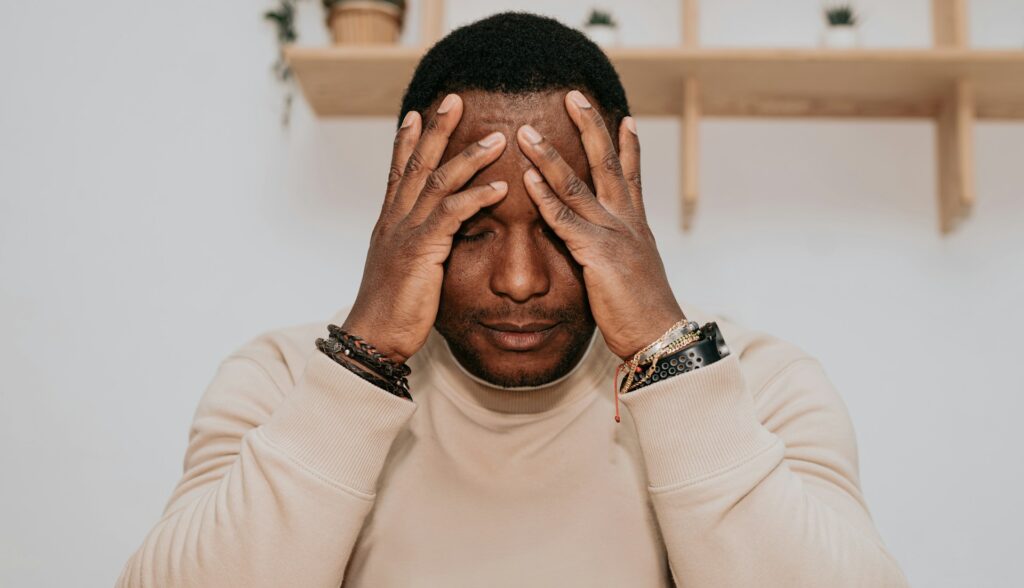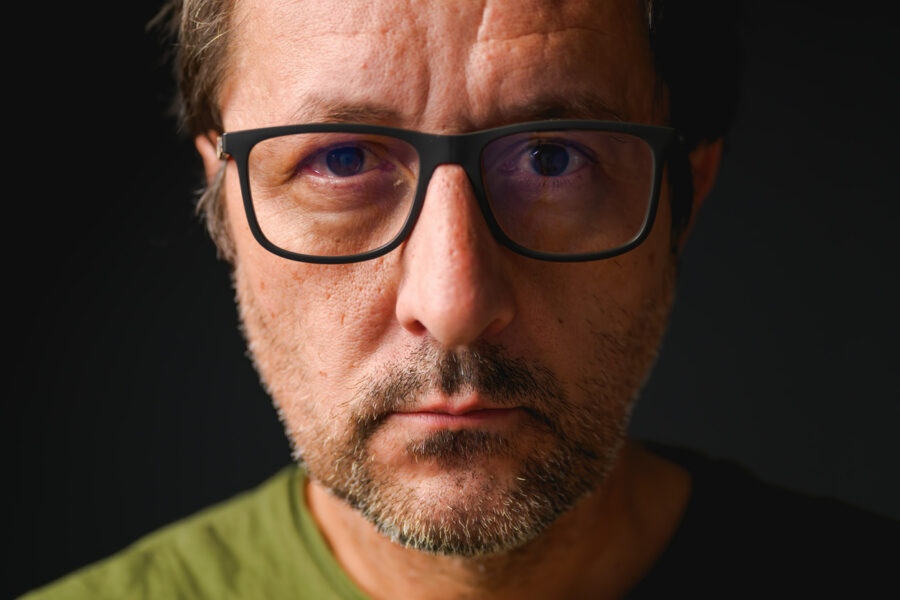Sometimes, it’s not a breakdown you experience—it’s more like a slow unravel.

You’re functioning on the outside, maybe even smiling in the right moments, but inside it feels like you’re barely hanging on. Mental health struggles don’t always manifest in overwhelming ways or seem obvious to anyone, even you. These signs can be quiet, subtle, and easy to overlook, but they’re your mind’s way of waving a little white flag.
1. You feel weirdly numb, even when something good happens.

Things that used to bring you joy now barely register. A compliment doesn’t land, an exciting plan doesn’t spark anything, and even big milestones feel flat or distant. You’re not ungrateful; you’re emotionally burnt out—there’s a big difference there. When your nervous system is stretched too thin, even happiness feels like something you can’t quite reach.
2. You can’t focus on anything for long.

Reading a paragraph, answering a message, or even watching a short video feels like a task. Your mind drifts constantly, and no matter how hard you try to concentrate, it won’t settle. That kind of mental fog can be a sign that your brain is overwhelmed. It’s not laziness; it’s your mind struggling to stay afloat while processing more than it can handle.
3. You keep cancelling plans because the idea of socialising is too much.

Even if you love your friends, the thought of talking, smiling, and pretending everything’s fine feels exhausting. So you flake last minute, ghost a group chat, or come up with excuses that even you don’t fully believe. Social burnout is real, and sometimes, it’s less about being antisocial and more about needing to protect the little energy you have left. If this keeps happening, it might be a sign your emotional battery is low across the board.
4. Small problems feel like the end of the world.

You drop your keys or get a mildly passive-aggressive email, and suddenly, you’re spiralling. Your reaction feels way bigger than the situation, and you know it, but you can’t stop it. This happens when your stress levels are already maxed out. There’s no more room in your system to absorb anything else, so even minor things hit like a punch in the gut.
5. You’re constantly tired, but can’t sleep properly.

You could sleep for 10 hours and still wake up feeling like you barely rested. Or, you’re lying awake for hours, unable to switch off the anxious thoughts looping in your head. When your mental health is shaky, rest stops feeling restful. Your body might be still, but your mind never quite clocks out, and that exhaustion adds up fast.
6. You keep telling people you’re just tired or busy.

“I’ve just been so busy” becomes your default answer for everything, even when you know it’s not really true. It’s easier than saying, “I don’t feel okay, and I don’t know how to explain it.” Sometimes, the mask feels necessary. However, as time goes on, those little lies start to isolate you more because no one knows you’re silently falling apart behind the polite small talk.
7. Everything feels a bit pointless.

You’re still going through the motions, but the motivation is gone. Work, chores, hobbies—it all feels like a to-do list you’re barely keeping up with, not something that brings any meaning. That low-level hopelessness can sneak in quietly. It doesn’t always look dramatic. Sometimes it just feels like being on autopilot with no clear reason why.
8. Your inner voice has turned against you.

That little voice in your head? It’s got meaner. It criticises you constantly, questions your worth, and finds fault in even the smallest things. When your mental health is fragile, self-compassion is often the first thing to disappear. The problem isn’t your actual value; it’s the lens you’re seeing yourself through, and right now, it’s warped.
9. You feel emotionally overexposed, or completely shut down.

One moment you’re tearing up over an advert, the next you feel like you can’t access your emotions at all. Your reactions swing wildly between hypersensitive and totally flat. That emotional whiplash isn’t random. It’s your mind struggling to regulate when everything feels too much. You’re not broken; you’re overwhelmed.
10. You start feeling weirdly invisible.

You could be surrounded by people but still feel completely unseen. You doubt whether anyone really notices how quiet you’ve got, or how off you’ve been lately. That disconnection doesn’t mean you’re not loved. It just means your mind is pulling away as a form of self-protection. But the longer it goes on, the more isolated you start to feel.
11. You overthink every word you say.

You replay conversations on loop, second-guess messages, and convince yourself you’ve annoyed or disappointed someone, even when there’s no real evidence of it. That level of self-monitoring often comes from anxiety and low self-worth. When your mental health is slipping, your brain gets stuck in worry mode, trying to fix things that were never broken.
12. You forget basic things constantly.

Appointments, names, tasks, even what day it is—it all starts to blur together. You feel scatterbrained and disconnected from time, like you’re always one step behind. Of course, forgetfulness isn’t a sign of incompetence. It’s a clue that your brain is overwhelmed and trying to conserve energy wherever it can.
13. You’ve stopped doing the little things that usually help.

Things like making your bed, going for a walk, or listening to music—they’ve all fallen off the radar. You know they help, but the effort feels like too much lately. When your mental health is stretched thin, even simple self-care can feel unreachable. It’s not laziness; it’s a sign your system is asking for help.
14. You crave escape more than connection.

Scrolling for hours, bingeing shows, sleeping excessively, or fantasising about quitting everything and disappearing—it’s all a way to avoid what’s happening internally. These escapes might work for a little while, but they don’t fix the core. When escape becomes your default coping tool, it’s often because you don’t feel safe or equipped to deal with your own reality.
15. You keep wondering when you’ll finally snap, and hoping no one notices.

You’re aware you’re on the edge, but you’re still holding it together on the outside. You get through your day with gritted teeth, hoping the cracks don’t show too much. That silent struggle is exhausting, and the hardest part is knowing something needs to give, but not wanting to be the one to fall apart first. That moment is usually when support matters most.


